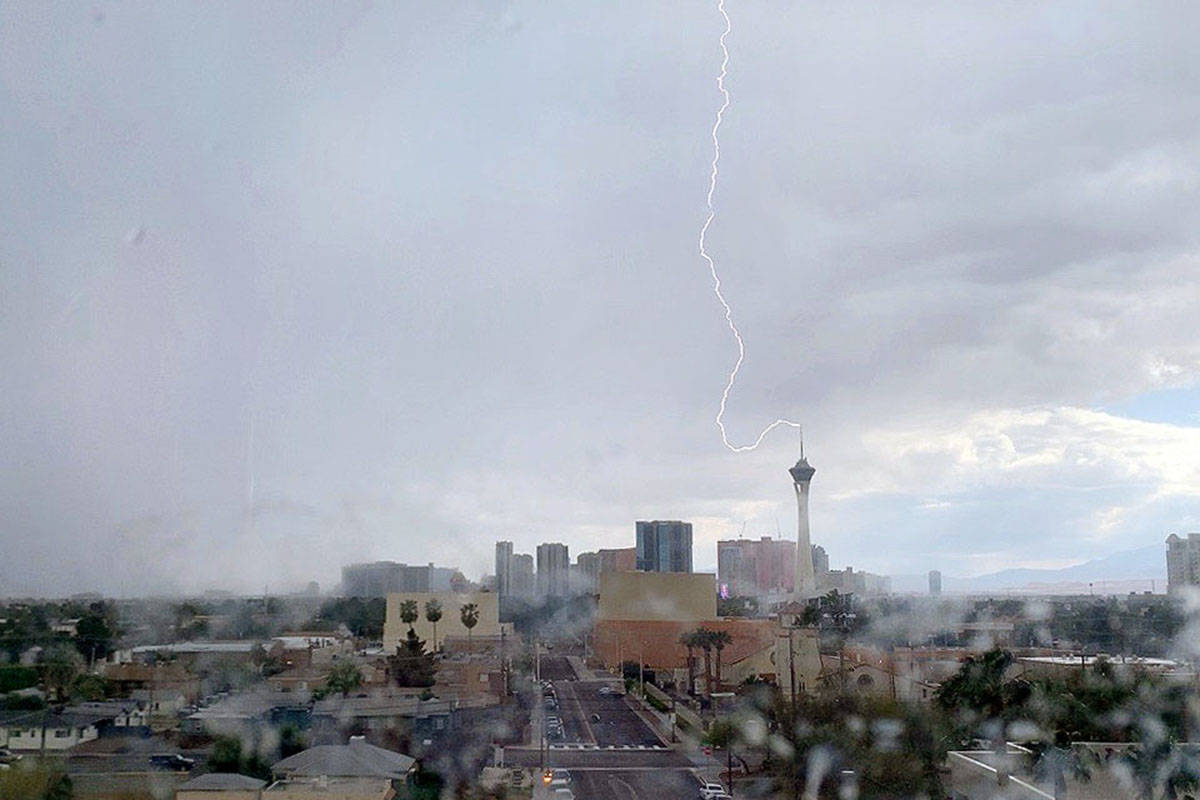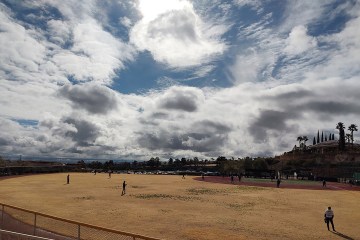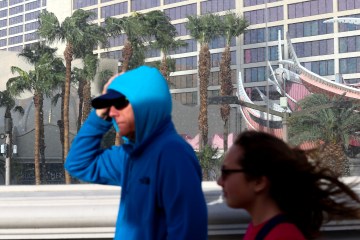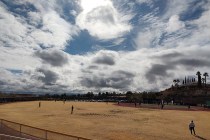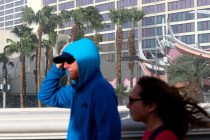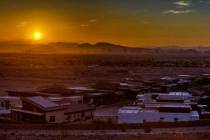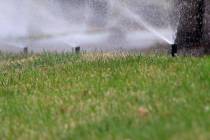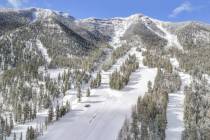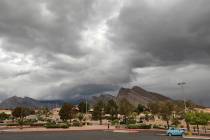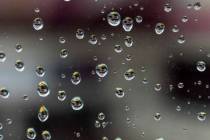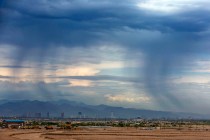Las Vegas’ rainless streak reaches 235 days with no end in sight
Las Vegas has gone 235 days without rain through Friday. Will we it make it to 365?
“The rest of the year looks dry all the way,” said National Weather Service meteorologist Trevor Boucher, adding that the outlook for early 2021 “is tending toward drier than normal.”
The entire West Coast is likely to have drier than normal conditions for the next 14 days or pretty much to the end of 2020, Boucher said.
Though it may seem like an eternity since the last raindrops fell, 2020 won’t be among the valley’s driest years.
“Despite the 235 days without rain, even if we don’t get any more rain, 2020 will not even be in the top 10 of driest years in Las Vegas history,” Boucher said. “It would be 16th.”
Rainfall for 2020 to date is 2.31 inches, with a normal full year being 4.12 inches. The driest year was 1953 when only 0.56 inches of precipitation fell at McCarran.
Last rain April 20
January (0.53 inches on average) and February (0.56 inches) are typically the wettest months of the year. But for 2021, the weather’s service’s Climate Prediction Center’s outlook for the two months calls for a 45 percent chance of drier than normal conditions, 33 percent for near normal rainfall and 22 percent for above normal precipitation.
After winter ends, the March average is 0.42 inches and April drops to 0.22 inches.
The last measurable rain at McCarran International Airport was April 20.
The irony of the strange weather year may have gotten lost in the COVID-19 pandemic, Boucher said.
“March (1.64 inches) was our wettest month of the year and then COVID took over (the news),” he said.
Safety, environmental concerns
The lack of rainfall can cause safety, environmental and psychological issues, say some experts.
“When it finally rains, oil on the roadways that has built up for months makes driving very slick for 10 or 15 minutes,” said Kirk Stowers, principal geologist for Broadbent & Associates, a Las Vegas environmental engineering firm.
That oil eventually runs into washes and eventually into Lake Mead, leading to one environmental concern.
“Unlike toilet water that is treated, rainfall goes right into the lake,” Stowers said. “I’m certain there is a surge of hydrocarbons in the wash shortly after a rain event.”
The lack of rain also causes several species of plants to suffer, thereby reducing their ability to help alleviate weather impacts on the environment.
“Although we do have a lot of plants that can get by without much water, they do suffer from lack of rain,” Stowers said. “Wetlands down by the wash will remove contaminants, so if plants are suffering (from lack of rain) they are not as effective at removing contaminants.”
Rainfall has other benefits.
“It helps to clear the air and you’ll notice the day after a rain is usually pretty clear,” Stowers said. “You can see the Strip wherever you are, and the rain does a good job of washing all the crap out of the air. Rain knocks down particulates rather than having to trust on wind to move it out or just having particulates settle.”
Climate change to blame?
The rainless streak of nearly eight months can’t be directly tied to climate change, but it certainly doesn’t help.
“Clearly, climate change has had a substantial impact on us in Southern Nevada,” Stowers said. “When I was a kid in Las Vegas we’d have 100-degree days, but I never remember weeks of 110 or 115 degrees. Such temperatures are dangerous to to people and animals and to our general overall health.”
Psychological issues
Lack of rain can also cause mental health concerns.
Normally, seasonal affective disorder (SAD) affects people more in gloomy climates, but too much sun can also cause the disorder, says Las Vegas physician and medical educator Dr. Dahlia Wachs.
“When you don’t get a chance for melatonin to kick in because of too much sunlight you can be affected too,” Wachs said.
In addition, the break in the usual routine because of Christmas can be a significant attitude booster in most years. But Christmas 2020 may not be so uplifting.
“Christmas is very happy time for most because it looks different with snow on the mountains and trees and nippy weather,” Wachs said. “When it doesn’t look like Christmas in Southern Nevada because of so much sun, it can worsen the depression because there is no 30 days of escape. It has been a very warm winter and people are trying to escape what we have had all year long. We may be limited on shopping and other Christmas activities.
“It’s not going to be our typical Christmas weather and it does weigh on people,” she said.
Contact Marvin Clemons at mclemons@reviewjournal.com. Follow @Marv_in_Vegas on Twitter.



